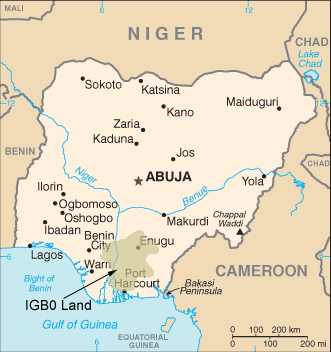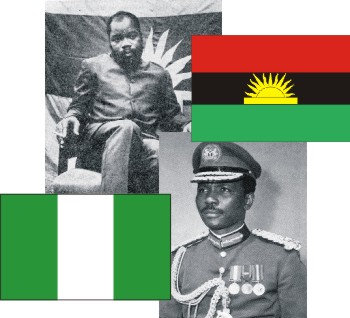Igbo History
Discover the rich heritage, culture, and historical journey of the Igbo people
"The Igbo, and perhaps the Idoma and Ijaw, would appear to be one of the only surviving coherent ethnic groups from the first set of proto-Kwa speakers to penetrate the forest areas of Southern Nigeria."— Professor A. E. Afigbo
Pre-colonial Life
Pre-colonial Igbo political organization was based on semi-autonomous communities, devoid of kings or governing chiefs. With the exception of towns such as Onitsha, which had kings called Obis, and places like Nri and Arochukwu, which had priest-kings known as Ezes, most Igbo village governments were ruled solely by an assembly of the common people.
This way of governing was immensely different from most other communities of Western Africa, and only shared by the Ewe of Ghana. Igbo secret societies also had a ceremonial script called Nsibidi. Igbos had a calendar with a four-day week, a seven-week month, and thirteen months in a year. They practiced indigenous banking (Isusu) and had systems of mathematics and justice based on deities.
Post-colonization
The arrival of the British in the 1870s and increased encounters with other Nigerians led to a deepening sense of Igbo ethnic identity. The Igbo were quick to embrace Christianity and Western education, which reshaped their cultural identity.
The novel "Things Fall Apart" by Igbo author Chinua Achebe is a fictional account of the clash between British colonialism and traditional Igbo life.

Instability and Biafra Secession
The 1966 coup led by Igbo officer Major Nzeogwu resulted in a retaliatory pogrom in the North, prompting a mass exodus of Igbos. This escalated to the 1967 secession of the Eastern Region and the formation of the Republic of Biafra under Colonel Ojukwu.
A civil war followed, lasting until 1970, and ended with Biafra's defeat. Despite the devastation, Biafra made major technological strides under intense adversity.

"In the three years of the war, necessity gave birth to invention... We became the most technologically advanced black people on earth."
Igbo Language
Igbo (asụsụ Ndi Igbo) is spoken by about 30 million people, especially in southeastern Nigeria. It is a tonal language and written in the Roman script. Igbo was key in linguistic studies that broke from classical linear phonology.
Despite being widely spoken, literacy and literature in Igbo remain limited. ICAC supports efforts to teach and preserve the language through local initiatives like the Igbo Language School.
Dialects
Igbo has many mutually intelligible dialects including Owerri, Umuahia, Onitsha, and Nsukka. Central Igbo was developed as a standardized literary form but remains controversial.
Efforts to broaden its inclusivity continue, though many, including Chinua Achebe, have challenged it by promoting local dialects.
Usage
Igbo is mainly spoken rather than written, and is often replaced by Pidgin English in urban areas. Literacy in Igbo is low but efforts to promote the language persist among diaspora communities and local institutions.
ICAC encourages families to teach their children Igbo as a means of preserving identity.
Vocabulary
Igbo has absorbed English loanwords (e.g., "blu" for blue, "opareto" for operator). Many compound words reflect cultural concepts—like "akwukwo nri" (leaf for food = vegetables), "ugbo igwe" (vehicle of iron = train).
The word "akwukwo" originally meant leaf, but now also means paper, book, and education, showing linguistic adaptation over time.
References
Awde, Nicholas & Onyekachi Wambu (1999). Igbo-English/English-Igbo Dictionary. Hippocrene Books.
Emenanjo, 'Nolue (1976). Elements of Modern Igbo Grammar. Oxford University Press.
International Phonetic Association (1999). Handbook of the International Phonetic Association.